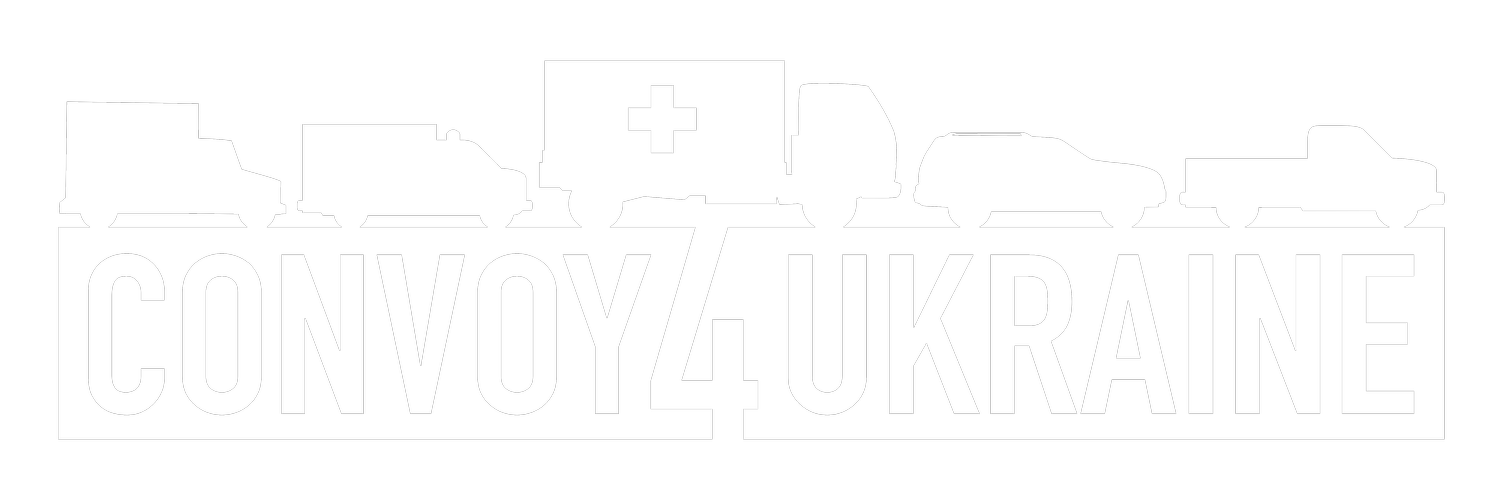
Frequently asked questions.
Taking part in a convoy
-
After we cross the border, we only drive about 10 miles into western Ukraine, complete the handover and return to Poland the same day. We are a long way from the frontline.
However, no part of Ukraine can be considered completely safe due to the potential risk of Russian aggression. Since January 2024, the Foreign Office advises against all but essential travel to the western regions of Ukraine.
We constantly risk assess all our activities and keep up-to-date with the latest developments. As events can change, our Safety Policy allows anyone on convoy to leave at any time for whatever reason – nobody is obliged to cross into Ukraine. It’s OK to spend the day in Poland while the handover takes place.
-
As little as possible. Wear comfortable clothing, nothing smart but check the weather. Eastern Poland is generally colder than the UK. We stay in hotels that provide towels and toiletries. Try to bring a mobile phone, charger, credit/debit card, and a few euros.
-
Yes, but we’d ask you to cover this cost. We expect all drivers to pay for their own insurance partly because costs vary and partly because some drivers want extra time with their vehicles before we leave. On our last convoy, the insurance range was from £60 to £350 per driver which would represent a considerable sum of our overall donations. It is worth checking your current policy as many now include third party cover for all vehicles.
-
Our next convoy is 3rd-8th March 2025. We leave on Monday the 3rd and fly home on Saturday the 8th from Poland. Most people take 5 days off work although many employers now offer volunteering days – it might be worth asking.
-
It will take us 4 days of driving to reach Poland, our final stop before crossing into Ukraine the following day. We travel together in the vehicles which we will leave in Ukraine, leaving the UK by ferry from Dover to Dunkirk.
We only drive during daylight hours and stay in hotels which have safe car parks, located near our route. Driving times can vary but expect early starts, and driving stints of around 2 hours in between breaks.
We stay overnight on Monday in Belgium, Tuesday in Germany, Wednesday in Czech Republic and Thursday and Friday in Poland. We fly home from Poland on a budget airline.
-
Your contribution will go towards the cost of buying the vehicles, ferry crossing, road tax and fuel.
We may also spend your contribution on humanitarian aid – either because we cannot get specific items donated for free or because they can be purchased by us cheaply in Poland.
Your contribution also covers your hotel bookings and flight back to the UK, which is approximately £500 per person – it does not pay for any food, drink or other expenses.
Some of our volunteers kindly pay these costs out of their own pockets, meaning that 100% of the funds they raise will go directly to the purchase and delivery of vehicles and aid to Ukraine.
-
Depending on the overall funding situation and the size of the shortfall, it might be possible. The good news is that our team can provide support to individual fundraisers with photos, videos and advice from veteran fundraisers.
Donations & Fundraising
-
We only take humanitarian aid requested by our Ukrainian partners. As such, it can change each convoy. Typically, we take crutches, wheelchairs, medical items, adult nappies, tents, sleeping bags, food items, tools, workwear, generators. The primary aid we take is the 4x4 vehicles themselves. Importantly, we do not take lethal aid.
-
Most of our funds are spent on buying and delivering 4x4 vehicles and aid. We have a team of experienced volunteers who work with a network of dealers to source, negotiate and secure the vehicles requested by our Ukrainian partners. These are diesel vehicles and types that the Ukrainians can maintain as spare parts are reasonably plentiful.
-
Our Ukrainian partners have several uses for the vehicles and aid we provide. The Russian bombing of Ukrainian cities, towns and villages is indiscriminate and has impacted the civilian population. Many – especially the elderly – do not want to leave their homes and possessions and choose to stay, despite the danger.
The primary aid we supply is the 4x4 vehicles which are used for civilian evacuations and delivering aid and care packages. They are easy to access, especially for the elderly, very young and those injured, and have the physical capacity required to move whole families and their possessions/pets. They have powerful engines and robust tyres which means they can go off-road or manoeuvre through bombed residential areas and rubble-strewn roads.
The rest of the material aid we take is food, basic medical supplies, emergency items and increasingly needed items for the disabled such as crutches and wheelchairs.
